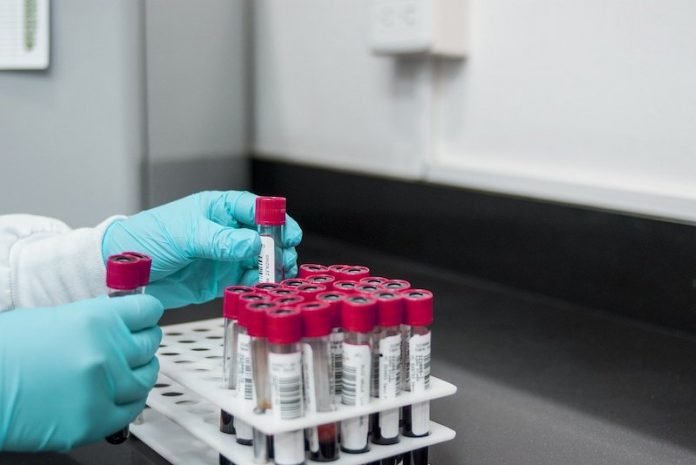
Glioblastomas are aggressive brain tumors that are commonly diagnosed through a risky and invasive surgical biopsy.
In a new study from Washington University in St. Louis, researchers developed a noninvasive diagnostic method that may one day replace the tissue biopsy with a simple blood test.
The method, known as sonobiopsy, uses focused ultrasound to target tumors deep in the brain.
Once located, the researchers inject microbubbles into the blood that travel to the ultrasound-targeted tissue and pulsate, which safely opens the blood-brain barrier.
The temporary openings allow biomarkers, such as DNA, RNA and proteins, from the tumor to pass through the blood-brain barrier and release into the blood.
The team first conducted a feasibility study in mice, followed by a safety evaluation study, and most recently, another study in pigs.
While blood-based liquid biopsy has been used in human patients with other cancers for personalized medicine, progress in extending the method to human brain cancer has been limited.
In the new research, the team found that the sonobiopsy method boosted the detection of genes highly expressed in glioblastoma, EGFRvIII.
The DNA levels of EGFRvIII circulating in the bloodstream of the group that underwent sonobiopsy was 920 times greater than the group that underwent convention blood-based liquid biopsy.
Further, detection of another circulating tumor genetic marker, TERT C228T ctDNA was 10-fold higher after sonobiopsy.
In addition, the method improved diagnostic sensitivity from 7.14% to 64.71% for EGFRvIII and from 14.29% to 45.83% for TERT C228T.
In the pig model, sonobiopsy boosted detection of EGFRvIII ctDNA by 270-fold and increased levels of TERT ctDNA nine-fold.
It improved diagnostic sensitivity from 28.57% to 100% for EGFRvIII and from 42.86% to 71.43% for TERT C228T.
The study showed that sonobiopsy enriched tumor-specific ctDNA in the plasma and improved the detection sensitivity for two glioblastoma phenotypes without posing big safety risks
The team says the integration of sonobiopsy with advanced blood analysis assays has the promise to provide a minimally invasive, spatiotemporal-controlled, and sensitive diagnosis of brain cancer.
If you care about cancer, please read studies about what you need to know about bladder cancer and findings of this plant compound may help pancreatic cancer patients.
For more information about cancer and your health, please see recent studies about this mental problem linked to higher cancer risk in men and results showing that this stuff in the body can protect against prostate cancer, fatty liver disease, diabetes.
The study is published in Theranostics. One author of the study is Hong Chen.
Copyright © 2021 Knowridge Science Report. All rights reserved.



